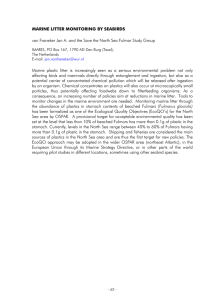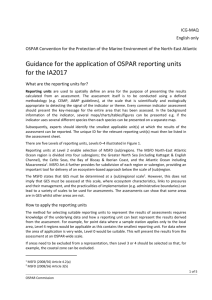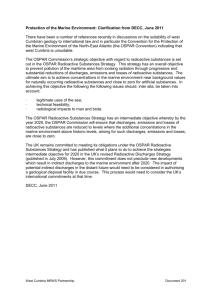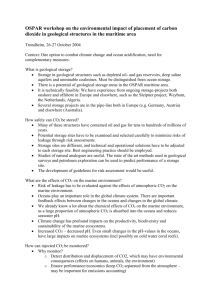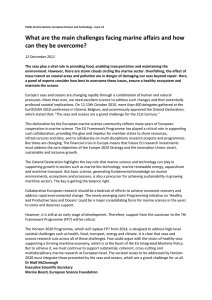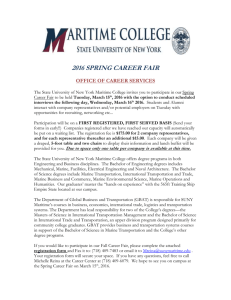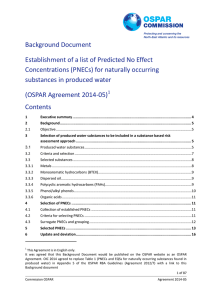SCIENCE DRIVING A BETTER MARITIME GOVERNANCE
advertisement
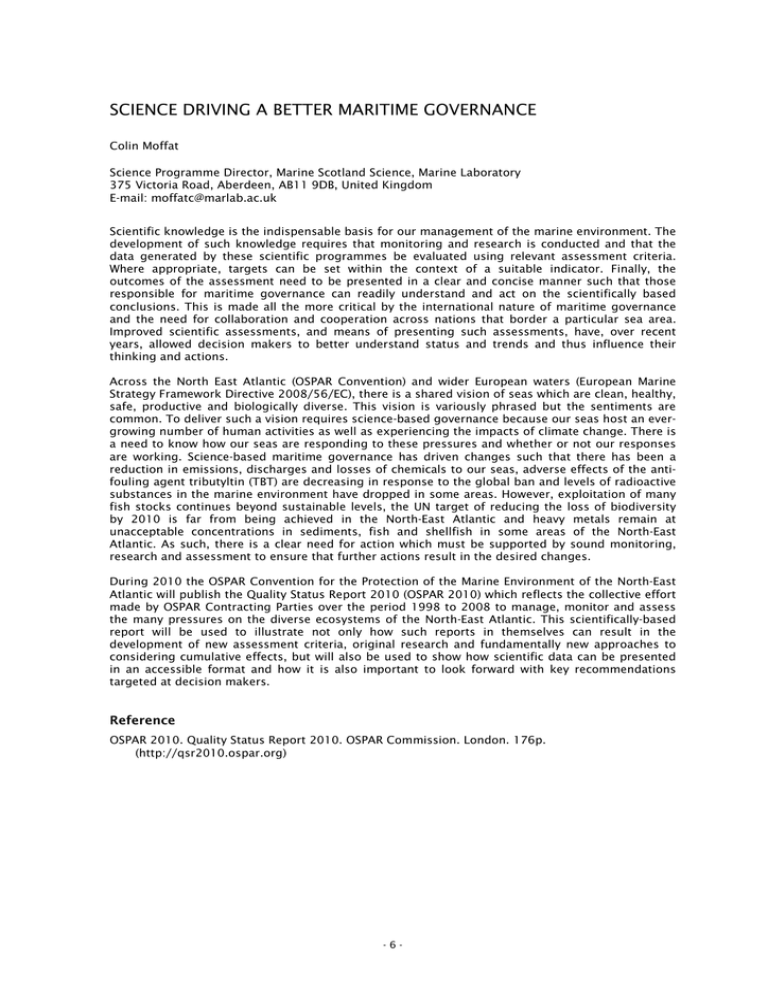
SCIENCE DRIVING A BETTER MARITIME GOVERNANCE Colin Moffat Science Programme Director, Marine Scotland Science, Marine Laboratory 375 Victoria Road, Aberdeen, AB11 9DB, United Kingdom E-mail: moffatc@marlab.ac.uk Scientific knowledge is the indispensable basis for our management of the marine environment. The development of such knowledge requires that monitoring and research is conducted and that the data generated by these scientific programmes be evaluated using relevant assessment criteria. Where appropriate, targets can be set within the context of a suitable indicator. Finally, the outcomes of the assessment need to be presented in a clear and concise manner such that those responsible for maritime governance can readily understand and act on the scientifically based conclusions. This is made all the more critical by the international nature of maritime governance and the need for collaboration and cooperation across nations that border a particular sea area. Improved scientific assessments, and means of presenting such assessments, have, over recent years, allowed decision makers to better understand status and trends and thus influence their thinking and actions. Across the North East Atlantic (OSPAR Convention) and wider European waters (European Marine Strategy Framework Directive 2008/56/EC), there is a shared vision of seas which are clean, healthy, safe, productive and biologically diverse. This vision is variously phrased but the sentiments are common. To deliver such a vision requires science-based governance because our seas host an evergrowing number of human activities as well as experiencing the impacts of climate change. There is a need to know how our seas are responding to these pressures and whether or not our responses are working. Science-based maritime governance has driven changes such that there has been a reduction in emissions, discharges and losses of chemicals to our seas, adverse effects of the antifouling agent tributyltin (TBT) are decreasing in response to the global ban and levels of radioactive substances in the marine environment have dropped in some areas. However, exploitation of many fish stocks continues beyond sustainable levels, the UN target of reducing the loss of biodiversity by 2010 is far from being achieved in the North-East Atlantic and heavy metals remain at unacceptable concentrations in sediments, fish and shellfish in some areas of the North-East Atlantic. As such, there is a clear need for action which must be supported by sound monitoring, research and assessment to ensure that further actions result in the desired changes. During 2010 the OSPAR Convention for the Protection of the Marine Environment of the North-East Atlantic will publish the Quality Status Report 2010 (OSPAR 2010) which reflects the collective effort made by OSPAR Contracting Parties over the period 1998 to 2008 to manage, monitor and assess the many pressures on the diverse ecosystems of the North-East Atlantic. This scientifically-based report will be used to illustrate not only how such reports in themselves can result in the development of new assessment criteria, original research and fundamentally new approaches to considering cumulative effects, but will also be used to show how scientific data can be presented in an accessible format and how it is also important to look forward with key recommendations targeted at decision makers. Reference OSPAR 2010. Quality Status Report 2010. OSPAR Commission. London. 176p. (http://qsr2010.ospar.org) -6-
